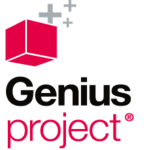Description

Genius Project

Steelray Project Analyzer
Comprehensive Overview: Genius Project vs Steelray Project Analyzer
Here's a comprehensive overview of the Genius Project and Steelray Project Analyzer, focusing on their primary functions, target markets, market share, user base, and key differentiating factors:
Genius Project
a) Primary Functions and Target Markets
- Primary Functions: Genius Project is a project management software designed to support organizations in planning, executing, and monitoring projects. It offers a wide range of tools such as project planning, resource management, time tracking, budgeting, document management, and collaboration features. Additionally, it focuses on helping teams manage project portfolios and track performance with analytics and reporting tools.
- Target Markets: Genius Project targets mid-sized to large enterprises across various industries, including manufacturing, IT, engineering, and finance. It's suited for organizations that require complex project management capabilities and need to manage multiple projects simultaneously.
b) Market Share and User Base
- Market Share and User Base: Genius Project is a well-recognized name in the project management space but doesn't dominate the market like some of the major players such as Microsoft Project or Jira. Its user base includes a range of enterprises seeking comprehensive PM solutions, but exact numbers in terms of user base or market share are not typically disclosed publicly.
c) Key Differentiating Factors
- Customization and Flexibility: One of its strengths is the high level of customization it offers, allowing organizations to tailor the software to their specific needs.
- Integrated Social Collaboration: Genius Project provides integrated social collaboration tools, enhancing communication and teamwork within the platform.
- On-Premise and Cloud Options: Offers both on-premise and cloud-hosted solutions, appealing to organizations with specific IT infrastructure preferences.
Steelray Project Analyzer
a) Primary Functions and Target Markets
- Primary Functions: Steelray Project Analyzer is a project schedule analysis tool designed to improve the quality and integrity of project schedules. It helps users identify potential issues in their project plans using metrics and reports based on schedule quality standards such as DCMA (Defense Contract Management Agency) guidelines.
- Target Markets: Steelray Project Analyzer is typically used by project managers and schedulers in industries where schedule compliance and integrity are crucial, such as aerospace, defense, and construction. Its users are often involved in large-scale, complex projects.
b) Market Share and User Base
- Market Share and User Base: Steelray Project Analyzer holds a niche position primarily among industries requiring stringent schedule management and compliance. It does not compete on the same level as broader project management tools and serves a more specialized user base.
c) Key Differentiating Factors
- Focus on Schedule Quality: It differentiates itself by focusing on the quality and compliance of project schedules, offering detailed analysis and reports to ensure schedules meet industry standards.
- Ease of Use with Existing Tools: Steelray is designed to integrate seamlessly with scheduling software like Microsoft Project, enhancing its analysis capabilities without replacing existing tools.
- DCMA Compliance: The software is highly valued in industries where DCMA compliance is a requirement due to its capability to audit schedules against these standards.
Comparison and Summary
- Functionality: Genius Project offers a comprehensive project management solution, whereas Steelray Project Analyzer is specialized in schedule quality analysis.
- Target Markets: Genius Project is broader in scope, while Steelray is more niche with a focus on industries needing rigorous schedule analysis.
- Customization vs. Specialization: Genius Project excels in customization and overall project management, while Steelray shines in its specialization in schedule quality and compliance.
In summary, Genius Project and Steelray Project Analyzer serve different needs within the project management lifecycle, with the former providing a wider range of PM tools and the latter offering specialized schedule analysis and compliance capabilities.
Contact Info

Year founded :
1997
Not Available
Not Available
Germany
http://www.linkedin.com/company/genius-project

Year founded :
Not Available
Not Available
Not Available
Not Available
Not Available
Feature Similarity Breakdown: Genius Project, Steelray Project Analyzer
When comparing Genius Project and Steelray Project Analyzer, it's important to recognize that both are project management tools but they serve slightly different purposes. Here’s a breakdown of their features, user interfaces, and any unique aspects:
a) Core Features in Common
Both products have a foundational set of features designed to enhance project management capabilities:
-
Project Scheduling and Planning:
- Both tools offer project scheduling capabilities, allowing users to define tasks, set deadlines, and allocate resources to ensure projects are well-planned and on track.
-
Resource Management:
- They provide functionalities for managing project resources, ensuring that the right team members, materials, and other assets are effectively utilized.
-
Reporting and Analytics:
- Reporting features that enable users to generate insights from project data are available in both, offering various types of project reports to track progress, performance, and compliance.
-
Task Management:
- Users can create and manage tasks, assign them to team members, and track their progress through different project phases.
-
Import/Export Capabilities:
- Both tools offer the ability to import and export project data to/from other systems or formats, though the specific formats may vary.
b) User Interface Comparison
While both products are designed with usability in mind, their interfaces differ due to their primary focus and design philosophies:
-
Genius Project:
- It generally provides a comprehensive dashboard with a focus on enterprise project management, featuring customizable views and tailored dashboards. The interface tends to focus on being user-friendly but is more suited for users looking for an expansive feature set in project management.
-
Steelray Project Analyzer:
- Steelray Project Analyzer is known for its simplicity and emphasis on schedule analysis over general project management. Its interface is typically streamlined to allow users primarily to focus on inspecting and analyzing project schedules.
c) Unique Features
Each tool has features that differentiate them from one another:
-
Genius Project:
- Workflow Management: Allows for complex workflow automation and customization suited for broader enterprise project management needs.
- Financial Management: Offers features for budgeting, cost management, and financial reporting, which are particularly useful for large-scale projects.
- Collaboration Tools: Provides collaborative tools such as social collaboration features, document management, and team communication integrations.
-
Steelray Project Analyzer:
- Schedule Health Checks: Provides specialized analysis focusing on schedule integrity, identifying issues like logic errors, date constraints, and resource over-allocations.
- Gartner's DCMA 14-Point Assessment: Integrates industry-standard metrics for project schedule performance, allowing for compliance and benchmarking.
- Direct Integration with Microsoft Project and Primavera: Offers seamless schedule file analysis specifically targeted towards these platforms.
In summary, while both Genius Project and Steelray Project Analyzer share common project management features, they're tailored to slightly different needs, with Genius Project focusing more on holistic project management and collaboration, while Steelray Project Analyzer specializes in schedule analysis and compliance.
Features

Team Collaboration
Resource Management
Reporting and Analytics
Integration and Customization
Project Management

Project Schedule Analysis
Compliance and Standards
Customizable Reporting
Resource Management
Best Fit Use Cases: Genius Project, Steelray Project Analyzer
Genius Project and Steelray Project Analyzer are both specialized tools designed to enhance project management and analysis, but they cater to different needs and scenarios. Here’s an overview of the types of businesses or projects where each might be most effective, and how they cater to different industry verticals or company sizes:
Genius Project
a) Best Fit Use Cases:
-
Complex Project Requirements: Genius Project is ideal for businesses with complex project management requirements that involve multiple stakeholders, phases, and interdependencies. These can include industries like construction, engineering, IT, and product development.
-
Resource Management Needs: Companies that require robust resource management capabilities, including resource allocation, time tracking, and workload balancing, will find Genius Project valuable.
-
Cross-functional Collaboration: Businesses that operate in environments where cross-departmental collaboration is crucial. This can apply to large organizations with various teams working together on integrated projects.
-
Project Portfolio Management: Organizations that are managing a portfolio of projects simultaneously and need tools for prioritization, risk management, and portfolio performance analysis.
Industry Verticals and Company Sizes:
- Large Enterprises and Mid-sized Companies: Given its robust feature set, Genius Project is better suited for larger businesses or mid-sized companies that require comprehensive project management solutions.
- Sectors like Manufacturing, IT, and Construction: Industries with intricate project lifecycles benefit from the detailed planning and management capabilities.
Steelray Project Analyzer
b) Preferred Scenarios:
-
Schedule Analysis: Steelray Project Analyzer excels in project schedule analysis, making it suitable for projects where schedule integrity and adherence to timelines are critical.
-
Compliance and Standards Adherence: Organizations that need to ensure compliance with scheduling standards such as those from the PMI or maintain adherence to industry best practices.
-
Risk Management: Projects where identifying scheduling risks and bottlenecks is paramount can greatly benefit from Steelray Project Analyzer’s capabilities in highlighting potential issues.
Industry Verticals and Company Sizes:
- Construction and Government Projects: Industries that rely heavily on precise scheduling and adherence to strict timeframes, like construction and government contracts, particularly benefit from its capabilities.
- Medium to Large Enterprises: Given the focus on in-depth schedule analysis, it's more beneficial for medium to large enterprises that require thorough schedule scrutiny.
Catering to Different Industry Verticals and Company Sizes:
Genius Project:
- Customization and Scalability: Offers extensive customization which makes it adaptable for different industry needs and scales with the company as it grows.
- Comprehensive Features: Its wide array of features makes it versatile for various industry verticals, providing detailed insight and management capabilities.
Steelray Project Analyzer:
- Specialized Focus: Provides a specialized focus on schedule integrity and performance, which is highly beneficial for industries where precise timeline management is crucial.
- Ease of Use for Technical Schedules: Ideal for companies that need detailed schedule analysis without necessarily investing in a full-scale project management solution.
Both tools provide targeted solutions that align with the unique needs and challenges faced by various industries and enterprises, ensuring they cater to the specific demands of their respective users.
Pricing

Pricing Not Available

Pricing Not Available
Metrics History
Metrics History
Comparing undefined across companies
Conclusion & Final Verdict: Genius Project vs Steelray Project Analyzer
To provide a conclusive analysis and verdict for Genius Project and Steelray Project Analyzer, we need to examine their capabilities, value propositions, pros, cons, and suitability for different types of users. This comparison will help determine which product offers the best overall value.
A) Best Overall Value
When considering which project management software offers the best overall value, it is essential to consider features, pricing, user experience, support, and integration capabilities. Both Genius Project and Steelray Project Analyzer are valuable tools for project management, but they are tailored to different aspects of project management needs.
-
Genius Project:
- Strengths: Known for its comprehensive project management capabilities, Genius Project is highly suitable for a complete project lifecycle approach. It provides robust features for time tracking, resource management, document management, collaboration, and reporting.
- Value: Offers better value for organizations seeking a comprehensive project management solution with emphasis on end-to-end project lifecycle management and collaboration.
-
Steelray Project Analyzer:
- Strengths: Specializes in project schedule analysis and optimization. It is ideal for users focusing on critical path analysis and ensuring adherence to scheduling best practices.
- Value: Offers significant value for users focused primarily on enhancing and analyzing project schedules, making it an excellent choice for project scheduling professionals seeking detailed analytical capabilities.
Conclusion: Genius Project offers the best overall value for comprehensive project management, while Steelray Project Analyzer is exceptional for schedule analysis. The best choice depends on the organization's specific needs.
B) Pros and Cons
Genius Project:
- Pros:
- Comprehensive project management features covering the full project lifecycle.
- Strong collaboration tools which enhance team communication.
- Customizable reports and dashboards for valuable insights.
- Integrated time and resource management capabilities.
- Cons:
- Can be overwhelming for users looking for a simple scheduling tool.
- May require more setup and customization time.
- Licensing cost could be higher compared to simpler tools focusing solely on scheduling.
Steelray Project Analyzer:
- Pros:
- Specialized high-quality project schedule analysis tools.
- Easy integration with existing scheduling tools like Microsoft Project.
- Assists in identifying schedule quality issues through metrics and tests.
- Useful for enforcing scheduling best practices.
- Cons:
- Limited beyond scheduling analysis; not a full project management solution.
- May lack collaboration and resource management features found in broader PM tools.
- Better suited for organizations with distinct schedule analysis focus rather than general project management.
C) Recommendations
-
For Comprehensive Project Management Needs: Choose Genius Project if your organization requires a full-fledged project management tool that addresses every phase of project management from inception to completion, especially if you value collaboration and resource management.
-
For Detailed Schedule Analysis Needs: Opt for Steelray Project Analyzer if your organization’s primary focus is on project scheduling, especially if you need to conduct schedule quality analysis, followed by integration with tools like Microsoft Project.
-
Customization and Training Considerations: When deciding between the two, consider how much time your team can invest in learning and customizing the software to suit your workflow. Genius Project might require more upfront investment in training compared to Steelray Project Analyzer.
-
Budget: If budget constraints are a significant factor, evaluate which tool aligns best with your financial resources given its features and the size of your team.
Ultimately, the decision boils down to whether the organization's focus is on complete project lifecycle management or on refining project scheduling processes.
Add to compare
Add similar companies



